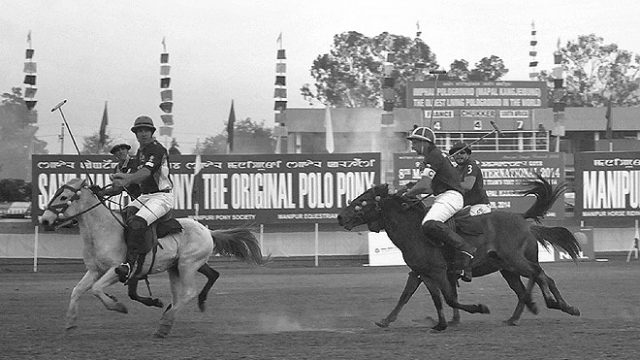On a cool afternoon of October 2014, I stood just outside the polo ground’s boundary line, clutching my camera and holding my breath as I watched the riders on their ponies, galloping about, trying to hit the perfect goal. I was in Mapal Kangjeibung, the world’s oldest living polo ground, watching the 8th Manipur International Polo Event.
I was attending the annual Sangai Festival in Imphal and the polo event was going on at the same time. Little did I know then about the reason behind the polo match. Turns out, Manipuri ponies are on the verge of extinction—thanks to the loss of habitat—and such events hope to raise public awareness of the gentle beasts. This particular polo event was being played between seven international teams—Mongolia, Thailand, France, Poland, South Africa, the US and the UK. What’s so special about this? Unlike other tournaments across the globe, these matches in Manipur allow only Manipuri ponies—smaller in size and unlike the thoroughbreds, harder to manoeuvre.

It is believed that the modern game of polo has its roots in Manipur. This claim is only made stronger with the mention of Sagol Kangjei in the early traditional records and British officers’ interest in the game, which was later introduced to other parts of the world. With a special permission from the organisers, I got into the corner of the ground to get a better view of the match and take pictures. I couldn’t help but wonder how it would have been like to watch the traditional polo matches that the Meiteis have been playing from time immemorial—bare feet, clad in white dhoti and turban and a chin-strap. The older game had stricter rules. Makes you wonder how different it would be from the modern-day game played by the elites of Delhi and Jaipur! Manipuri polo, incidentally, did not have any connection with the royals; it was a something that was enjoyed by the commoner.
(According to a census conducted by the Manipuri Pony Society in 2014, there are less than 500 ponies remaining in the world)




